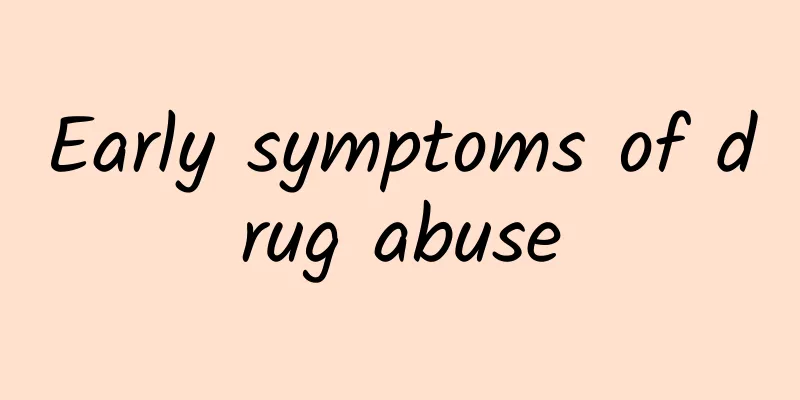What medications are used to treat Parkinson's disease?

|
The number of elderly people in modern life has greatly increased, which has added considerable pressure to society. In particular, some middle-aged and elderly diseases are the most harmful. For example, Parkinson's syndrome is a disease with a very large impact. It has the greatest impact on the lives of the elderly and can cause the elderly to lose the ability to take care of themselves, etc. Let's take a look at what drugs are used to treat Parkinson's? I hope everyone can understand. 1. Dopamine mimetic drugs 1.1 Dopamine prodrugs Levodopa (L-dopa): It is derived from the hydroxylation of tyrosine and is an intermediate in the synthesis of NA in the body. ①Pharmacokinetics Oral levodopa is rapidly absorbed in the upper small intestine. The plasma t1/2 is 1 to 3 hours. After absorption, it is decarboxylated into dopamine by the liver's decarboxylase during its first passage through the liver. Dopamine does not easily pass through the blood-brain barrier, and only less than 1% of levodopa is transported into the brain. Therefore, the simultaneous use of peripheral decarboxylase inhibitors (such as carbidopa) can significantly increase the available levodopa in the brain and reduce the amount of levodopa used, and can also reduce the adverse reactions caused by peripheral dopamine. Levodopa and its metabolites are mostly excreted through the kidneys, with a small amount excreted through the intestines. ②Clinical application 1) It can treat patients with all types of PD, but is ineffective for PD caused by antipsychotic drugs such as chlorpromazine (chlorpromazine blocks DA receptors); 2) It is effective for mild cases and young patients, but less effective for severe cases or the elderly and weak, and the therapeutic effect is related to the number of remaining neurons; 3) It is effective for muscle stiffness and movement difficulties, but less effective for muscle tremors; 4) It has a slow and long-lasting effect, and the efficacy increases with the prolonged use of the drug, and the best effect can be obtained in 1 to 6 months. ③Adverse reactions Early adverse reactions 1) Gastrointestinal reactions: 80% of the initial nausea, vomiting, and loss of appetite are related to CTZ. Ulcers, bleeding and perforations may occasionally occur over the long term. 2) Cardiovascular reactions: orthostatic hypotension, arrhythmia. Long-term adverse reactions 3) Hyperkinesia (movement disorders): involuntary abnormal movements, such as clenching teeth, sticking out tongue, nodding, making funny faces and dancing-like movements. --There is too much DA in the striatum, or there is hypersensitivity to DA, so the dosage must be reduced. 4) Fluctuating symptoms: "On-off phenomenon", in which the patient's activities are normal or almost normal when "on", and then generalized or myotonic akinesia occurs when "off", seriously interfering with the patient's normal activities. --Mostly occurs after long-term medication. 5) Mental disorders: manifested as agitation, anxiety, insomnia, nightmares, etc. It may be related to the action of dopamine on the limbic lobe of the brain. Clozapine can be used for treatment. |
<<: What are the oral antifungal drugs?
>>: Are there serious consequences for stopping psychiatric drugs?
Recommend
Can the sequelae of facial paralysis be cured?
Facial paralysis is a disease in which muscle par...
Are topical ointments for paronychia effective?
When paronychia first occurs, one side of the nai...
Precautions after bloodletting
Bloodletting therapy refers to using a needle to ...
What causes pustules on feet?
The foot is an important part of the human body. ...
The efficacy and function of ginseng amino acid oral solution
The key ingredients of wild ginseng carbohydrate ...
What shouldn’t you eat while taking Chinese medicine?
Because Chinese medicine has very little side eff...
What can I eat to get rid of vocal cord nodules?
Vocal nodules are also called singer's nodule...
What medicine can I take to delay ejaculation quickly?
Premature ejaculation, also known as premature ej...
What are the benefits of drinking Astragalus in water?
Astragalus is a common Chinese medicinal material...
Why does lower back pain occur after moxibustion?
Moxibustion is a relatively traditional treatment...
What should I do if I burp with a rotten egg smell and have diarrhea?
Hiccups are a normal physiological symptom of peo...
What foods contain vitamin C?
Speaking of the vitamins contained in the human b...
What is the best medicine for low blood pressure?
If the diastolic blood pressure is high, you shou...
Can you get pregnant in 11 days?
Pregnant women can not only detect the results of...
What to do if wisdom teeth become inflamed
Many people will grow wisdom teeth at irregular i...









